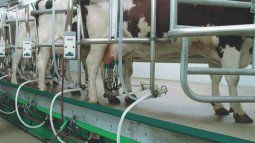The report registers a decrease in the purchase of household goods and services of more than 7% year-on-year in May. They warn about income that is not enough to rebuild purchasing power.
He Consumption Indicator (IC) of the Argentine Chamber of Commerce and Services (CAC) showed a decline of 7.7% in May at an interannual level, while the accumulated variation is -4.3% and the drop compared to the previous month was 2.2%. With these results, the entity warned of the “deep deterioration” in consumption in the first half of the year and pointed out that the increases implemented in the AUH, Alimentar Card and the bonus for retirees “do not seem to be enough.”
The content you want to access is exclusive to subscribers.
The data from the sector are not the only ones that support the question of whether the fall of the economy found a floor. A report of Orlando J. Ferreres showed that in May economic activity fell 4.4% year-on-year and 0.8% monthly. “Forward We hope that a slow recovery will begin in the coming monthscontingent upon the consolidation of the ordering of macro variables and family income growing above inflation,” the document states.


A priori, this reactivation is not articulated. The report from the CAC, an entity led by Mario Grinman, mentions that in the first five months of the year there was a decrease in 4.3% year-on-year CI, marking a “profound deterioration” in consumption reaching the middle of the year. At the same time, it highlights that the bearish trend in year-on-year growth rates mark in may the largest negative value recorded since February 2021.
The data arise in an economic scenario where inflation continues to slow down and even marked its lowest value since January 2022 in May. According to INDEC, the monthly CPI was 4.2%which implied an interannual variation of 276.4% and accumulated 71.9%.
For the entity represented by Grinman, the inflation in May is explained by the postponement of gas and electricity rate increases. However, the implementation of these increases “could accelerate inflation again and negatively impact the purchasing power of families”, increasing spending on housing, but reducing purchasing power for other items.
In turn, the CAC warns that the recessive context “reduces the possibility of nominal increases in wages that allow a recovery in demand”. In this sense, he also sent a message to the Government by pointing out that the increases in AUH and food cards and the persistence of bonuses for retirees “they seem not to be enough to rebuild purchasing power” of the most vulnerable sectors.
Grinman had assured in January that some businesses would fail, as he anticipated “six terrible months” ahead. In March, he moderated his speech and gave it a tinge of optimism: “Argentina is experiencing a recession with hope,” he emphasized. Two weeks ago, he resumed the same panorama recorded at the beginning of the year: “We knew that difficult times were coming. I don’t think there is any productive or industrial sector that is having a good time.”. However, he maintains that “we are not seeing layoffs or work suspensions,” with the exception of the construction and industrial sector.
When analyzing the performance of some items in particular, the contraction dynamics are generalized compared to the values of May 2023:
- Clothing and footwear: showed an estimated decrease in the fifth month of the year from 27% a.i. It is explained by credit card debts that generate the postponement of consumption that is not essential for daily life.
- Transportation and vehicles: low 11.3% yoy. The fall has to do with a level of automobile registrations that fell by 8% year-on-year, an increase in the price of gasoline and a decrease in sales of this fuel.
- Recreation and culture: the most affected, with a year-on-year decrease of 42.6% yoy According to the CAC, the reasons are the same as those of the clothing and footwear segment: the drop in real income reduced purchasing power and postponed access to goods and services related to leisure.
- Housing, rents and utilities: showed an estimated increase of 6.3% ia due to a greater increase in the use of electricity.
The contraction in consumption occurs in a context where registered salaries rose above inflation in April. According to Luis Campos, researcher at the CTA Institute of Studies and Training, the average salary of registered workers grew up 10.5% in April (12% the private sector and 7.5% the public) and beat it by almost two points to inflation (8.8%). However, the drop against November 2023 is from 13.9%. Since the end of 2017 the decline exceeds 30%.
Source: Ambito




